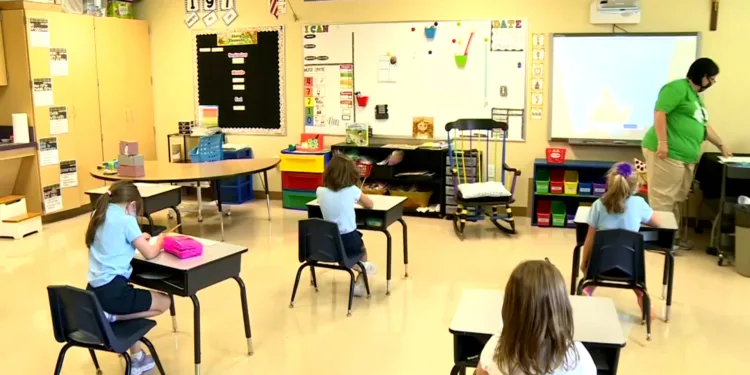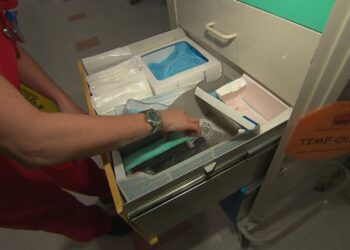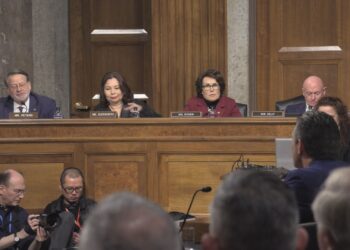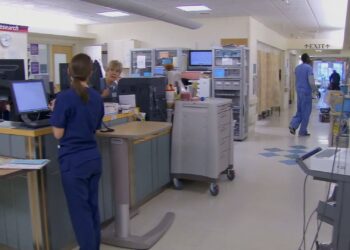WASHINGTON, D.C. – Studies have shown remote learning during the pandemic set our student’s educational growth back. It also impacted their overall social and mental well-being. In preparation for the next pandemic, congressional lawmakers are taking a hard look at the lessons learned from the coronavirus.
“Long term closing of schools proved to be harmful to students,” said Rep. Brad Wenstrup (R- OH).
In a recent hearing with the House Select Subcommittee on the Coronavirus Pandemic, lawmakers agreed: there was huge learning loss for students during the pandemic.
Data from the National Assessment of Education Progress, an exam that evaluates children across the country under the Department of Education, shows nine-year-olds lost the equivalent of two decades of progress in math and reading. Eighth and fourth graders also showed severe declines, especially in math.
The Department of Education said data collected before and during the pandemic shows that in-person learning on the whole leads to better academic outcomes, greater levels of student engagement and better social and emotional well-being.
“Our goal must be to make our schools resilient for the next highly contagious lethal virus so that we can keep our schools open, protect students and teachers, prevent outbreaks, and reduce transmissions of the virus in our communities,” said Rep. Raul Ruiz (D- CA).
Looking at the lessons learned from the coronavirus pandemic, members are preparing for the next one. The Education Department said in-person instruction should be a top priority for all communities. But keeping kids in class during a pandemic, schools should do a couple of things like improve ventilation, physical distancing, getting those eligible to be vaccinated, wearing masks, contact tracing and more. If students are unable to attend in-person classes, schools and districts need to make sure students remain engaged and connected by having a plan in place, provide rigorous instructional materials, address technology access and more.










